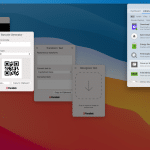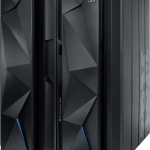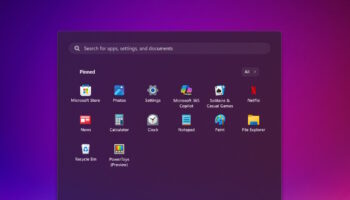Building a 'sticky' app, and why it matters

It is instantly clear to anyone who casts an inquiring eye over the digital landscape that mobile apps are the single most ascendant platform, and therefore afford businesses and content producers with the greatest opportunity. Anyone looking to establish a full digital suite to engage users or market their product would be remiss to overlook the efficacy of their application; and yet many apps are unintuitive, tricky to use, or bloated with confusing user interfaces (UI) or too many ideas.
The benefits of a great app are well-established. When compared with traditional customer management and communications platforms such as email, an application offers a far more engaged and purposeful experience -- the so-called 'captive audience' effect. Equally, the ability to maneuver away from volatile and unpredictable social media platforms, many of which increasingly require substantive investment in ongoing market campaigns to cut through to users, can be both lucrative in cost-savings and of significant brand value.
Monoprice Dark Matter 42892 is a 27-inch QHD gaming monitor with 180Hz refresh

Monoprice is a brand that in-the-know shoppers have come to love and respect. The company offers quality products at very affordable prices, including things like cables, headphones, mice, and more. If you are shopping while on a budget, you definitely need to check out the company's offerings -- including for PC gaming.
Today, Monoprice launches its latest computer monitor under its Dark Matter gaming brand. Model number 42892, as it is unimaginatively named, is a 27-inch QHD display with 180Hz refresh and a Sharp-made IGZO panel.
API attack traffic grows more than 300 percent

In the past six months overall API traffic has increased 141 percent but in the same time period, API attack traffic has grown by a startling 348 percent.
A new report from Salt Security reveals significant challenges in addressing API security, with all Salt customers experiencing API attacks, security topping the list of API program concerns, and very few respondents feeling confident they can identify and stop API attacks.
Cybersecurity skills crisis impacts more than half of organizations

The cybersecurity skills crisis has impacted 57 percent of organizations, according to the fifth annual global study of cybersecurity professionals by the Information Systems Security Association (ISSA) and industry analyst firm Enterprise Strategy Group (ESG).
The survey of almost 500 security professionals finds the top effects of the skills shortage include an increasing workload for the cybersecurity team (62 percent), unfilled open job vacancies (38 percent), and high burnout among staff (38 percent).
Parallels Toolbox 5.0 adds new barcode, text conversion and image recognition tools to its roster

Parallels International GmbH has unveiled a major update to its eclectic toolkit for Windows and Mac users with the release of Parallels Toolbox 5.0. The latest new release adds five additional tools to its roster, along with a handful of improvements and other enhancements.
Version 5.0 opens by adding two new barcode tools. First, Barcode Generator can be used to generate 13 different types of barcodes including QR codes and EAN-8/EAN-13 codes. QR codes can be generated simply by typing (or pasting) the content to encode. The code can then be saved as PNG image or copied to the clipboard.
Windows 11 already accounts for more Windows installations than you might expect

Windows 11 has not even been officially released, but it is already installed on a surprising number of PCs.
The level of interest in the latest version of Microsoft's operating system is such that large numbers of people are taking advantage of the Windows Insider program to try out the preview builds ahead of the launch. The latest Windows usage figures from AdDuplex include Windows 11, and they make for interesting reading.
Recycle your old Raspberry Pi for free, and get money off a new one

I’ve bought quite a few Raspberry Pi over the years, upgrading each time a new model comes out. While I still use my Raspberry Pi 4 regularly, the older models are just gathering dust somewhere in the house.
OKdo has come up with a solution to this waste, partnering with Raspberry Pi and the Sony Technology Center to create OKdo Renew, an official scheme to renew old Raspberry Pi boards, and it's offering a financial incentive to get people to make use of it.
Cloud migration shows no signs of slowing down

According to a new study 31 percent of companies have moved workloads to the cloud within the last six months compared to only 18 percent six months ago.
Based on a survey of almost 1,000 IT decision makers, the report from cloud migration specialist Next Pathway shows 36 percent are migrating to the cloud to prevent customers from leaving for more personalized solutions offered by competitors that are using the cloud to enable a superior digital experience.
Microsoft releases KB5005392 and KB5005394 emergency patches for Windows printer and scanner problems

There have been a spate of problems with printing in Windows recently, including issues introduced by updates from Microsoft.
The most recent problems came for people who installed updates released this Patch Tuesday. Some found they were unable to print or scan after installing the updates, and now Microsoft has released a couple of out-of-band patches -- KB5005394 for Windows 10 and KB5005392 for Windows 7.
Microsoft says it will not be possible to bypass Windows 11 system requirements

Windows 11 is now just a matter of months away, and system requirements are a concern. While this is not going to be a problem for anyone buying a new computer with the operating system pre-installed, it is a major consideration for anyone upgrading to Windows 11 from Windows 10.
The requirement for TPM 2.0 is something that has attracted particular attention. While Microsoft has made it clear that for OEM customers with special requirements the TPM need can be eliminated with a custom Windows 11 image, the same is not true for the average user. Although a registry hack currently exists that makes it possible to bypass the need for TPM 2.0, Microsoft has stressed that it will not be possible to use Group Policy to get around hardware requirements -- possibly meaning that the registry hack will also not work once Windows 11 is released.
Samsung Odyssey Neo G9 curved gaming monitor uses Mini LED display technology

There are two curved displays in my home -- a computer monitor in my office and a television in my living room. Both look stylish, but truth be told, the curve doesn't make any difference when watching TV. Since I sit far back from the television, the curve doesn't add any benefit. On the computer monitor where I sit much closer, however, the curvature lends to a more immersive experience. I can't recommend curved computer monitors enough -- for both gaming and productivity.
Today, Samsung announces its latest monitor, and it is very special. Called "Odyssey Neo G9," the 49-inch display is significant for being the first-ever curved gaming monitor to use Mini LED technology.
Avoiding the big bang data migration

Data migrations are by their very nature high risk initiatives and, if not planned effectively, they can create a significant headache for both the IT team and the organization. That’s because modern technology transfers are massively complex undertakings. However, data migration problems can often be traced back to confusion and disorganization surrounding the migration plan (if one is in place) and a failure to adequately prepare for the move.
Additionally, every company’s data landscape is unique. It may encompass everything from legacy systems to homegrown one-off databases, each with its own level of support. Documentation may be non-existent, institutional knowledge may be limited, and key staff may have left. This makes the task much more complex to undertake.
What does the Edge mean for IoT?

A lot has been written about the IoT revolution and how the technology has the capability to revolutionize industries, transform productivity and unlock new levels of insight. But for those intrigued by the possibilities and looking to dip their toe in the water, the potential myths of high price point, infrastructure and connectivity challenges, as well as the required skill set can be significant hurdles that seem insurmountable.
In addition, especially when it comes to the reality of industrial IoT, the cost, time and disruption that goes into a brand new facility -- the prospect of having to rip and replace new infrastructure to support IoT just isn’t a viable option for many businesses. So what’s the alternative? In this article I'll explain how edge IoT and analytics can provide a powerful mechanism for translating complex data sources into a streamlined, lower cost platform with faster return on investment and higher value. First, let's consider some of the key challenges businesses face when considering an investment in IoT.
Is detection of ransomware the key solution for small business rather mitigation?

According to Checkpoint Research, ransomware attacks have surged significantly, hitting a double-digit increase of 93 percent year-on-year. As of June 2021, the number of organizations impacted by ransomware has risen to 1,210. This exponential rise is also attributable to the migration to remote work globally. The amount paid by victims of these attacks has increased by almost 300 percent in 2020 alone
These staggering statistics paint a grim picture of the security threat that companies face. As early as July 2021, as many as 1,500 businesses world-wide have been affected by ransomware attack -- REvil. The group has reportedly used Kaseya IT software as backbone for this notorious attack. Around $70 million dollars were demanded from the affected companies to restore business data. The companies that majorly came under the radar were supermarkets, IT companies -- primarily small to medium sized, schools and kindergartens
Mainframe applications still key to business strategy

According to a new study from the IBM Institute for Business Value, 71 percent of executives surveyed say mainframe-based applications are central to their business strategy.
Also, in three years, the percentage of organizations using mainframe assets in a hybrid cloud environment is expected to increase by more than two times.
© 1998-2025 BetaNews, Inc. All Rights Reserved. About Us - Privacy Policy - Cookie Policy - Sitemap.




